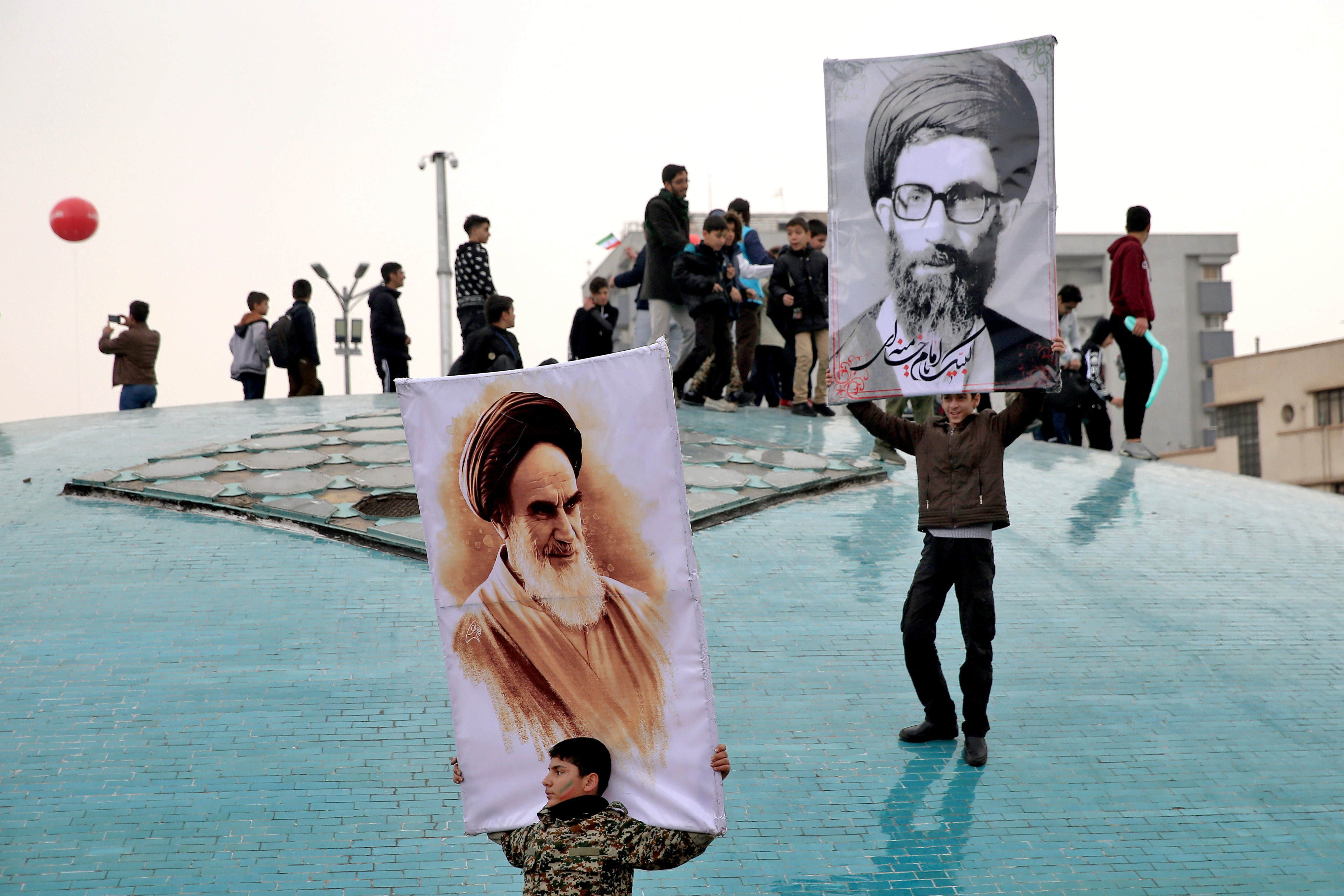Iran marks the 45th anniversary of the Islamic Revolution as tensions grip the wider Middle East
Iran has marked the 45th anniversary of the 1979 Islamic Revolution amid tensions gripping the wider Middle East over Israel’s continued war on Hamas in the Gaza Strip

Iran marked Sunday the 45th anniversary of the 1979 Islamic Revolution amid tensions gripping the wider Middle East over Israel’s continued war on Hamas in the Gaza Strip.
Thousands of Iranians marched through major streets and squares decorated with flags, balloons and banners with revolutionary and religious slogans.
In Tehran, crowds waved Iranian flags, chanted slogans, and carried placards with the traditional “Death to America” and “Death to Israel” written on them. Some burned U.S. and Israeli flags, a common practice in pro-government rallies.
Processions started out from several points, converging at Azadi Square in the capital. State TV showed crowds in many cities and towns, claiming that “millions participated in the rallies” across the country.
The military displayed a range of its missiles, including the Qassem Soleimani and Sejjil ballistic missiles, the Simorgh satellite carrier and drones at the square where people took selfies with them.
During the celebrations, a paratrooper jumped from a plane while displaying a Palestinian flag.
Many high-ranking Iranian officials attended the celebrations in Tehran, including hard-line President Ebrahim Raisi.
He addressed the crowds in Azadi Square and called on the United Nations — in a speech broadcast by state TV — to expel “the Zionist regime,” as the crowds chanted: “Death to Israel.” Raisi also said, "the bombing of Gaza has to be stopped as soon as possible.”
The commander of the powerful Islamic Revolutionary Guard Corps General Mohammad Salami and Gen. Esmail Ghaani, the head of the expeditionary force of Iran’s paramilitary Revolutionary Guard, also took part in the celebrations, while the head of the Judiciary body, Gholamhossein Mohseni Ejehi, was at the rally in the central city of Isfahan.
There was a heavy security presence in the major cities across the country.
The anniversary came a month after a deadly attack by the extremist Islamic State group in the central city of Kerman that left at least 95 people dead during the commemoration for prominent Iranian general Qassem Soleimani whom the U.S. killed in a 2020 drone strike.
Iran has tried to blame the U.S. and Israel for the attack as the Israeli offensive in the Gaza Strip continued. The Islamic Republic launched missile attacks on Iraq and Syria. It then struck alleged anti-Iran Sunni militant group Jaish al-Adl targets in nuclear-armed Pakistan, which responded with its own strikes on Iran, further raising tensions in a region inflamed by the Israel-Hamas war.
Earlier in January a drone attack killed three U.S. troops in Jordan which an umbrella group for Iran-backed factions known as the Islamic Resistance in Iraq claimed. The U.S. said it held Tehran responsible. Iran threatened to “decisively respond” to any U.S. attack on the Islamic Republic.
The Islamic Revolution began with widespread unrest in Iran over the rule of Shah Mohammad Reza Pahlavi. The shah, terminally and secretly ill with cancer, fled the country in January 1979. Ayatollah Ruhollah Khomeini then returned from exile and the government fell on Feb. 11, 1979, after days of mass demonstrations and confrontations between protesters and security forces.
Bookmark popover
Removed from bookmarks